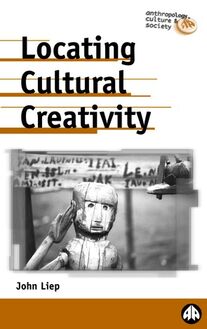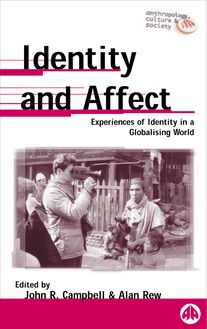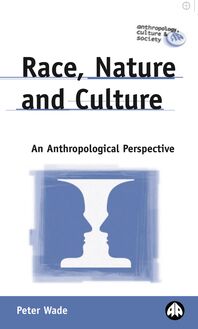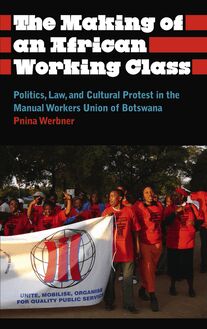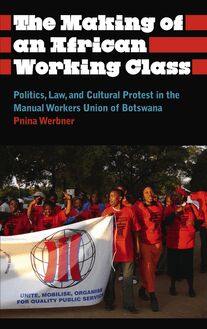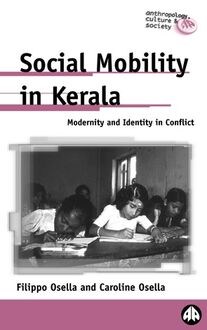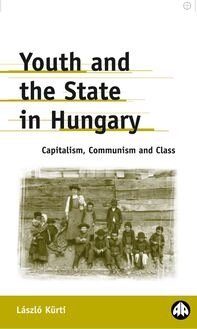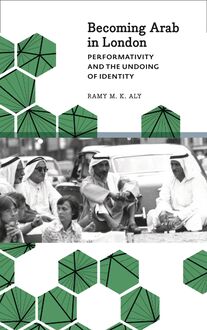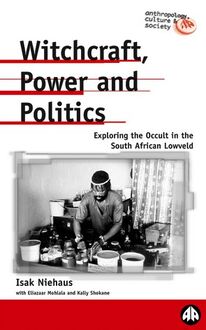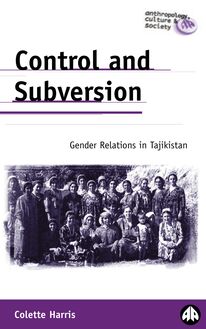Race and Sex in Latin America , livre ebook
180
pages
English
Ebooks
2009
Vous pourrez modifier la taille du texte de cet ouvrage
Obtenez un accès à la bibliothèque pour le consulter en ligne En savoir plus
Découvre YouScribe en t'inscrivant gratuitement
Découvre YouScribe en t'inscrivant gratuitement
180
pages
English
Ebooks
2009
Vous pourrez modifier la taille du texte de cet ouvrage
Obtenez un accès à la bibliothèque pour le consulter en ligne En savoir plus
Publié par
Date de parution
07 septembre 2009
Nombre de lectures
0
EAN13
9781783715374
Langue
English
Peter Wade provides a pioneering overview of the growing literature on race and sex in the region, covering historical aspects and contemporary debates.
He includes both black and indigenous people in the frame, as well as mixed and white people, avoiding the implication that 'race' means 'black-white' relations.
1. Introduction: defining race and sex
2. Explaining the articulation of race and sex
3. Race and sex in colonial Latin America
4. Making nations through race and sex
5. The political economy of race and sex in contemporary Latin America
6. Race, sex and the politics of identity and citizenship
7. Conclusion
References
Index
Publié par
Date de parution
07 septembre 2009
Nombre de lectures
0
EAN13
9781783715374
Langue
English
Race and Sex in Latin America
Anthropology, Culture and Society
Series Editors: Professor Vered Amit, Concordia University and Dr Jon P. Mitchell, University of Sussex
Published titles include:
Home Spaces, Street Styles: Contesting Power and Identity in a South African City
L ESLIE J. B ANK
On the Game: Women and Sex Work
S OPHIE D AY
Slave of Allah: Zacarias Moussaoui vs the USA
K ATHERINE C. D ONAHUE
A History of Anthropology
T HOMAS H YLLAND E RIKSEN AND F INN S IVERT N IELSEN
Ethnicity and Nationalism: Anthropological Perspectives Second Edition
T HOMAS H YLLAND E RIKSEN
Globalisation: Studies in Anthropology
Edited by T HOMAS H YLLAND E RIKSEN
Small Places, Large Issues: An Introduction to Social and Cultural Anthropology Second Edition
T HOMAS H YLLAND E RIKSEN
What is Anthropology?
T HOMAS H YLLAND E RIKSEN
Anthropology, Development and the Post-Modern Challenge
K ATY G ARDNER AND D AVID L EWIS
Corruption: Anthropological Perspectives
Edited by D IETER H ALLER AND C RIS S HORE
Culture and Well-Being: Anthropological Approaches to Freedom and Political Ethics
Edited by A LBERTO C ORSÍN J IMÉNEZ
Cultures of Fear: A Critical Reader
Edited by U LI L INKE AND D ANIELLE T AANA S MITH
Fair Trade and a Global Commodity: Coffee in Costa Rica
P ETER L UETCHFORD
The Will of the Many: How the Alterglobalisation Movement is Changing the Face of Democracy
M ARIANNE M AECKELBERGH
The Aid Effect: Giving and Governing in International Development
Edited by D AVID M OSSE AND D AVID L EWIS
Cultivating Development: An Ethnography of Aid Policy and Practice
D AVID M OSSE
Anthropology, Art and Cultural Production
M ARUŠKA S VAŠEK
Anthropology at the Dawn of the Cold War: The Influence of Foundations, McCarthyism and the CIA
Edited by D USTIN M. W AX
Learning Politics from Sivaram: The Life and Death of a Revolutionary Tamil Journalist in Sri Lanka
M ARK P. W HITAKER
Race and Sex in Latin America
PETER WADE
First published 2009 by Pluto Press 345 Archway Road, London N6 5AA and 175 Fifth Avenue, New York, NY 10010
www.plutobooks.com
Distributed in the United States of America exclusively by Palgrave Macmillan, a division of St. Martin’s Press LLC, 175 Fifth Avenue, New York, NY 10010
Copyright © Peter Wade 2009
The right of Peter Wade to be identified as the author of this work has been asserted by him in accordance with the Copyright, Designs and Patents Act 1988.
British Library Cataloguing in Publication Data A catalogue record for this book is available from the British Library
ISBN 978 0 7453 2950 5 Hardback ISBN 978 0 7453 2949 9 Paperback
ISBN 978 1 7837 1537 4 ePub ISBN 978 1 7837 1538 1 Mobi
Library of Congress Cataloging in Publication Data applied for
This book is printed on paper suitable for recycling and made from fully managed and sustained forest sources. Logging, pulping and manufacturing processes are expected to conform to the environmental standards of the country of origin. The paper may contain up to 70 per cent post consumer waste.
10 9 8 7 6 5 4 3 2 1
Designed and produced for Pluto Press by Chase Publishing Services Ltd, 33 Livonia Road, Sidmouth, EX10 9JB, England Typeset from disk by Stanford DTP Services, Northampton, England Printed and bound in the European Union by CPI Antony Rowe, Chippenham and Eastbourne
CONTENTS
Figures
Series Preface
Acknowledgements
Map of Latin America
1 .
Introduction: Defining Race and Sex
2 .
Explaining the Articulation of Race and Sex
3 .
Race and Sex in Colonial Latin America
4 .
Making Nations through Race and Sex
5 .
The Political Economy of Race and Sex in Contemporary Latin America
6 .
Race, Sex and the Politics of Identity and Citizenship
7 .
Conclusion
Notes
References Cited
Index
FIGURES
Map of Latin America
Figure 1 .
Amerigo [Vespucci] discovers America. Drawing by Jan van der Straeten, circa 1580, after an engraving by Théodore Galle
Figure 2 .
Engraving from Amerigo Vespucci’s Quatuor Navigationes (1509)
Figure 3 .
A casta painting from eighteenth-century New Spain
SERIES PREFACE
Anthropology is a discipline based upon in-depth ethnographic works that deal with wider theoretical issues in the context of particular, local conditions – to paraphrase an important volume from the series: large issues explored in small places . The series has a particular mission: to publish work that moves away from old-style descriptive ethnography – that is strongly area-studies oriented – and offer genuine theoretical arguments that are of interest to a much wider readership but which are nevertheless located and grounded in solid ethnographic research. If anthropology is to argue itself a place in the contemporary intellectual world then it must surely be through such research.
We start from the question: ‘what can this ethnographic material tell us about the bigger theoretical issues that concern the social sciences’; rather than ‘what can these theoretical ideas tell us about the ethnographic context’. Put this way round, such work becomes about large issues, set in a (relatively) small place, rather than detailed description of a small place for its own sake. As Clifford Geertz once said: ‘anthropologists don’t study villages; they study in villages’.
By place we mean not only geographical locale, but also other types of ‘place’ – within political, economic, religious or other social systems. We therefore publish work based on ethnography within political and religious movements, occupational or class groups, youth, development agencies, nationalists; but also work that is more thematically based – on kinship, landscape, the state, violence, corruption, the self. The series publishes four kinds of volume – ethnographic monographs; comparative texts; edited collections; and shorter, polemic essays.
We publish work from all traditions of anthropology, and all parts of the world, which combines theoretical debate with empirical evidence to demonstrate anthropology’s unique position in contemporary scholarship and the contemporary world.
Professor Vered Amit Dr Jon P. Mitchell
ACKNOWLEDGEMENTS
The roots of this book lie in my first in-depth studies of racial identities and relations in Colombia: it was clear from the start that sexual and gender relations were an important aspect of what was going on. I discussed some elements of sex and gender in my book Blackness and Race Mixture (1993a) and, later, in the short overview I wrote of Race and Ethnicity in Latin America (1997).
The real impetus for the current book, however, was a collaborative project with Colombian, Brazilian and British colleagues which involved a series of interdisciplinary seminars on Race and Sexuality in Latin America, which took place in Britain and Colombia in 2006–7. I am grateful to the British Academy for funding this project as part of their UK–Latin America/Caribbean Link Programme. I would like to thank all the participants in those seminars for their insights, and especially Fernando Urrea and Mara Viveros, who helped organise the events. The seminars resulted in the publication of an edited volume, Raza, etnicidad y sexualidades: ciudadanía y multiculturalismo en América latina (eds, Peter Wade, Fernando Urrea Giraldo and Mara Viveros Vigoya, Bogotá, Centro de Estudios Sociales (CES), Universidad Nacional de Colombia, 2008) and a good number of the chapters in that book have proved very useful in the present text.
I would also like to thank Andrew Canessa and Mónica Moreno, who not only participated in the seminar series, but with whom I have exchanged ideas and readings on several occasions. Mónica was also good enough to read the Conclusion and make some helpful suggestions. Joanne Rappaport, Sarah Radcliffe, Fernando Urrea, Ochy Curiel and my doctoral student, Pablo Jaramillo, were also kind enough to respond to emailed enquiries about attitudes to homosexuality within indigenous and Afrodescendant movements. I am obliged to the ESRC Centre for Research for Socio-Cultural Change at the University of Manchester for funding to cover part of the period of research leave during which I wrote this book.
It is a pleasure to publish once more with Pluto Press and my thanks are due to the Series Editors, Vered Amit and Jon Mitchell, and the two anonymous readers, as well as to David Castle, the commissioning editor at Pluto, and Robert Webb and Melanie Patrick on the production side.
Finally, I owe a huge debt of gratitude to Sue, Megan and Ben who allowed me time and space to write, when they had hoped that my being ‘on leave’ might mean I would do something other than stare at a computer screen all day long.
Map of Latin America
1
INTRODUCTION: DEFINING RACE AND SEX
After working on ‘race’ in Brazil and France in the 1950s, the French sociologist Roger Bastide wrote an article in which he posed the question of why, during his research, ‘the question race always provoked the answer sex’ (Bastide 1961). The French sociologist Etienne Balibar put it a little differently when he stated that ‘racism always presupposes sexism’ (1991: 49), while the US sociologist Joane Nagel thinks that ‘sex is the whispered subtext in spoken racial discourse’, and more generally that ‘ethnic boundaries are also sexual boundaries’ (2003: 2, 1). In his study of British colonialism, the historian Ronald Hyam concluded that ‘sex is at the very heart of racism’ (1990: 203), while the Martinican psychiatrist and revolutionary writer Frantz Fanon, writing from the point of view of the colonised, said: ‘If one wants to understand the racial situation psychoanalytically … considerable importance must be given to sexual phenomena. In the case of the Jew, one thinks of money and its cognates. In the case of the Negro, one thinks of sex’ (1986 [1952]: 160). And just in case one might conclude that the racist image of ‘the Jew’ plays only
